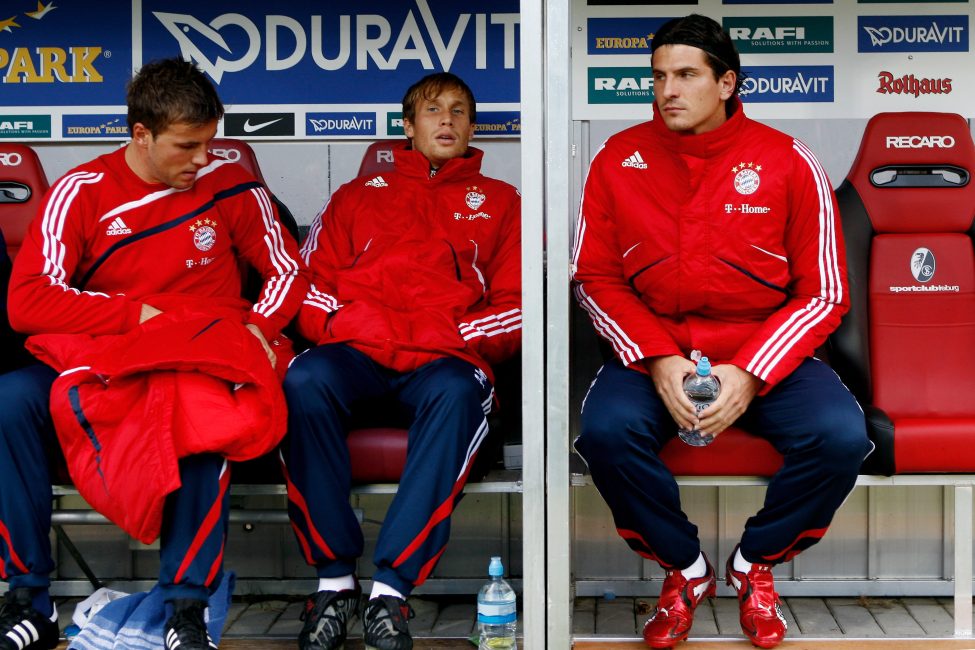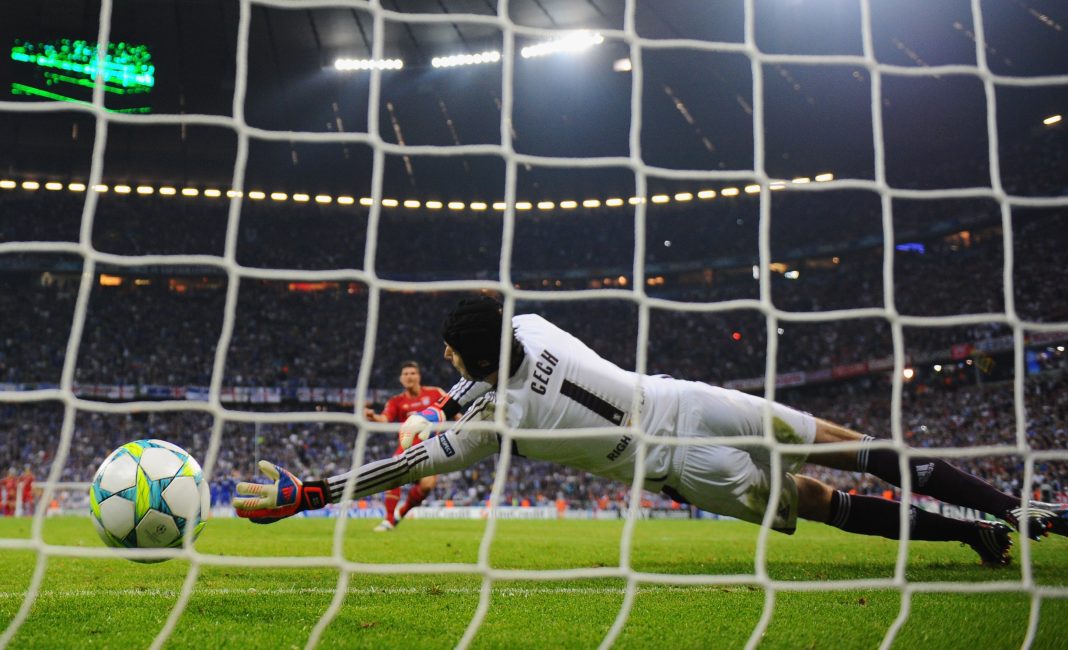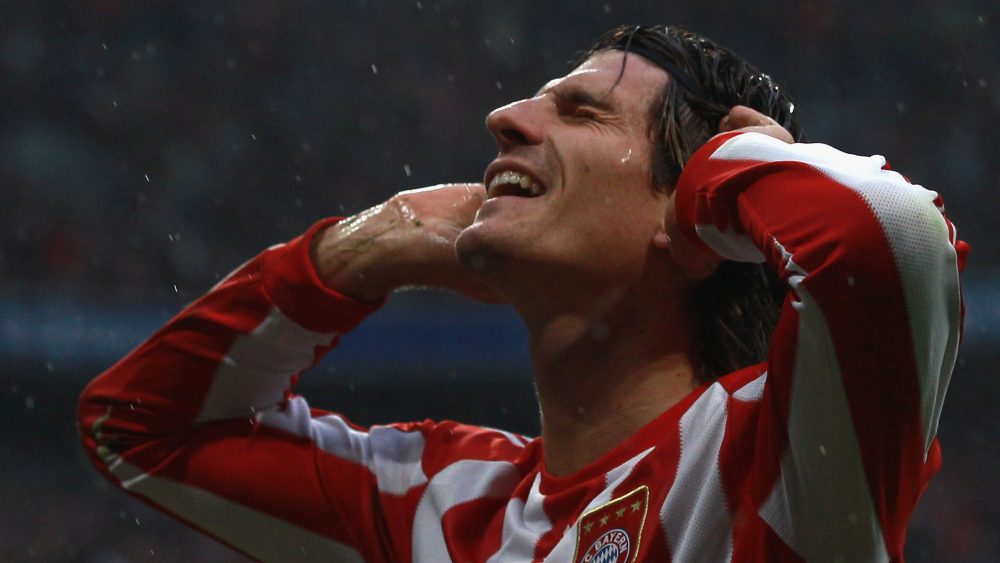Looking back: An ode to Super Mario
Everybody loves an underdog story and despite how well known his talents were, that’s exactly what Mario Gomez’ career had been.
Problems under van Gaal
After he burst on the scene with Stuttgart in 2003 he quickly attracted the interest of Bayern, and so they signed him in a rather strange transfer in 2009. Sure, the Klinsmann-disaster exposed many problems in the squad but the centre-forward position wasn’t really one of them. Obviously they had signed him just because of the good ol’ Uli Hoeneß strategy: If there was a quality German player, he was to play for Bayern. So despite Miroslav Klose and Luca Toni working well together, Bayern splashed the record-breaking fee of €30 million and signed Gómez in what the media would soon call the biggest transfer flop in Bayern’s history.

(Photo by Alex Grimm/Bongarts/Getty Images)
Louis van Gaal is a genius coach and Bayern must be eternally thankful for him changing their style of football, yet despite being a man of many talents, communication certainly wasn’t one of them. When things became dicey and questions arose why certain signings didn’t perform, he was quick to shift the blame: You see, they weren’t all his signings, the club signed Tymoshuck and Gómez before he came, so he had nothing to do with it.
Such a public statement usually spells doom for any player and indeed the season was disastrous for Gómez. He started the campaign expecting to be Bayern’s first choice striker and ended it as their third. And whereas many of his teammates managed to turn the season around with a spectacular World Cup, that tournament was a disaster for him, too.
Resurrection against Hannover
Gómez was looking for a way out, for a fresh start. He wanted to join Liverpool and when everything seemed done and dusted, his time at Bayern appeared to come to a close before it had even started. Or so everybody thought, but Uli Hoeneß and Karl-Heinz Rummenigge firmly overrode his transfer request. Both being former strikers themselves, they knew something about forwards and still saw something in Gómez.
So the 2010/11 season started right where the previous one had left off. With weeks going by and Gómez simply watching Olić from the comfort of the bench. Then fate intervened. With both Olić and Klose injured, van Gaal was forced to begrudgingly start his unwanted number three and, as the saying goes, the rest was history. To call his performances from this point on an explosion would still be an understatement. To this day I sometimes look up that fateful game against Hannover and remember how happy I was for him scoring that career-turning hattrick. Gómez didn’t score once in the first seven games of the season and ended up with the absurd goal tally of 28. Had he scored at that rate in all 34 games that season, Lewandowski might’ve been chasing Gómez, not Gerd Müller this season. All the talk of not fitting in with Bayern, only being a counter-attacking footballer, van Gaal hating him, all of that went quiet. Naturally, the bosses were beaming with contentment, reminding everybody what a great decision it was to veto that Liverpool move.
Humility amidst constant underappreciation
For two seasons straight Gómez scored left and right. In the league, in the cup, in the Champions League. All the while just showing how happy he was to finally help the team. It’s one of the great injustices that he got no silverware out of the peak of his career. Even more so: He always got the short end of the stick, always got blamed for the most absurd things. Scored in the semi against Madrid and took both penalties of that campaign, yet who did Hoeneß blame for the loss? Gómez. Scored the winner in the Euros against Portugal, yet who did Mehmet Scholl blame on live TV? Gómez. Had possibly the best game of his illustrious career mere days later against the Netherlands, yet what was the conversation after the game? Gómez not being good enough.

(Photo by Lars Baron/Bongarts/Getty Images)
What I love most about Gómez is his humility. He would lose his spot at Bayern the same way he’d gained it, by being injured and his replacement Mandžukić playing well, yet wouldn’t say a bad word about it. Jupp Heynckes is still tirelessly telling the story of how remarkable Gómez behaved that season. He would watch his friends lift the world cup trophy not with envy, but reignited passion, pushing him to his eventual career-comeback. He scored more goals in the Champions League than so-called world-class strikers like Crespo, van Persie, Higuaín and even Luis Suárez, but never told anybody that he’d be too good for Beşiktaş, Wolfsburg or the second division.
Mario Gómez is spectacularly underappreciated as a player and as a man and I’m so happy that he finished his career with a promotion. Thank you for your time at Bayern and congratulations Super Mario! Let’s all come together and push that button one final time: Mario Gómez (cha cha)!




 July 11, 2020
July 11, 2020 






[…] Looking back: An Ode to Super Mario | Daniel […]
I still think he’s considered the worst flop in the history of Bayern transfers, is he not? You have to feel for him.